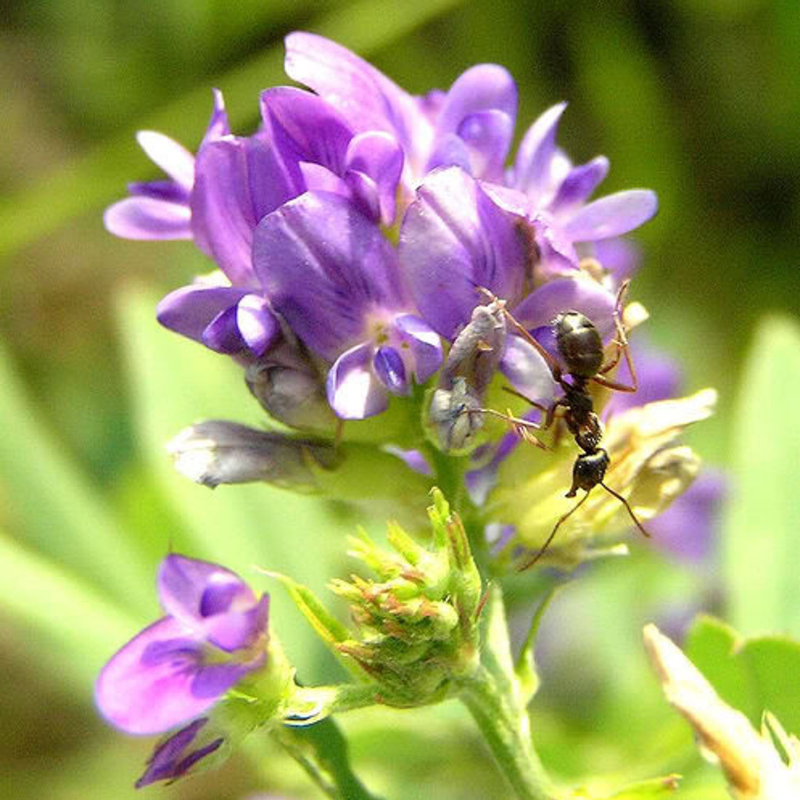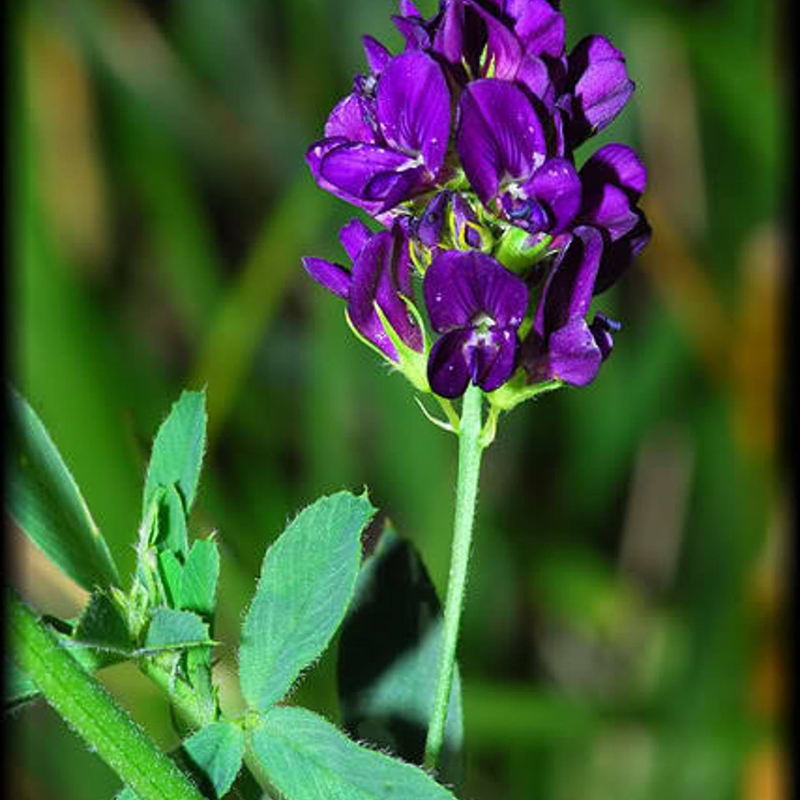- Historical context: Alfalfa, also known as Medicago sativa, is a perennial flowering plant in the pea family Fabaceae. It is cultivated as an important forage crop in many countries around the world.
- Geographical origination: Alfalfa is believed to have originated from South-Central Asia, and was first cultivated in ancient Iran.
- Relevant cultural significance: In the ancient world, Alfalfa was known for its nutritive qualities and was used as feed for horses and livestock. It was also used in traditional medicine.
- Time period of discovery: Alfalfa was discovered and cultivated as early as 4000 BC.
- Original habitat: Alfalfa's original habitat includes temperate climates and it prefers well-drained soil.
- Notable historical uses: Historically, Alfalfa has been used as a nutritive feed for livestock, and in traditional medicine for its various health benefits.
- Ideal temperature range: Alfalfa grows best in a temperature range of 20-25°C.
- Soil type: Alfalfa prefers well-drained, fertile soil with a pH between 6.0 and 7.5.
- Sunlight requirements: Alfalfa requires full sun to grow properly.
- Watering needs: Alfalfa needs regular watering, but the soil should not be waterlogged.
- Planting season: The best time to plant Alfalfa is in the spring.
- Germination time: Alfalfa seeds typically germinate within 7-14 days.
- Growth cycle duration: Alfalfa is a perennial plant and can live for up to 5 years.
- Common pests and diseases: Common pests include aphids, leafhoppers, and weevils. Diseases include bacterial wilt, root rot, and leaf spot.
- Companion planting advice: Alfalfa is a good companion plant for corn and other grains as it helps to fix nitrogen in the soil.
- Common challenges and solutions: Overwatering can lead to root rot. To prevent this, ensure the soil is well-drained.
- Nutritional values: Alfalfa is rich in vitamins A, C, E, and K and minerals such as calcium, potassium, phosphorous, and iron.
- Health benefits: Alfalfa is known to help lower cholesterol, reduce symptoms of menopause, and support healthy blood sugar levels.
- Culinary uses: Alfalfa sprouts are commonly used in salads, sandwiches, and soups.
- Medicinal uses: In traditional medicine, Alfalfa has been used to treat digestive problems, kidney conditions, and arthritis.
- Other unique advantages: Alfalfa is a great soil conditioner as it helps to fix nitrogen in the soil.






